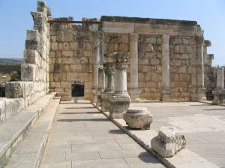On Toxic Leaders (Part 1)
(From Voice magazine, Jan/Feb 2016.)
By Kenneth O. Gangel
What Is a Toxic Leader?
A vast percentage of leadership books in both the secular and religious domains deal with how to move from average to good or good to great in your own leadership, or how to help other people on your team do just that. The same analysis holds true in periodical literature, both journals and magazines. That’s why Jean Lipman-Blumen’s book hit the market with a crash in 2004. The title alone suggests, one could say, an “alluring” analysis of something we have swept into the corner and refused to look at: The Allure of Toxic Leaders: Why We Follow Destructive Bosses and Corrupt Politicians—and How We Can Survive Them.
Defective Christian leaders rarely get their pictures in Time or Newsweek for defrauding employees or driving their ministries into bankruptcy, but make no mistake about it, we have toxic leaders in our midst. Lipman-Blumen wonders why people follow such leaders and decides they do so because of a desire for dependence, a need to play a more crucial role in the organization, and just plain fear.


 Reprinted with permission from
Reprinted with permission from 

Discussion